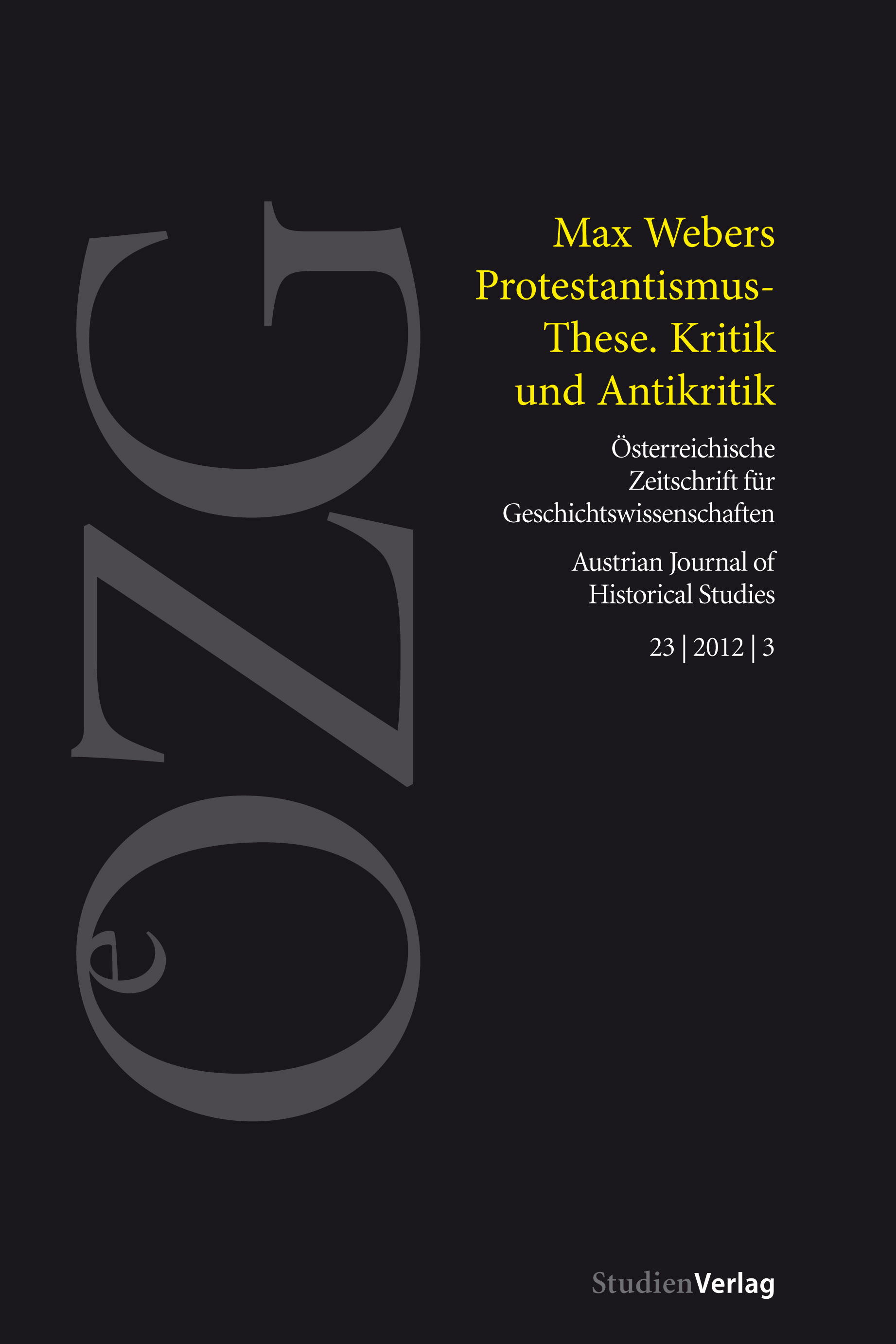Gateways to Modernity: Niccolo Machiavelli and Max Weber
The Birth of Occidental Rationality
DOI:
https://doi.org/10.25365/oezg-2012-23-3-7Schlagworte:
Modernity, Western rationality, secularization, Machiavelli, nation-building, Kulturkampf, Max WeberAbstract
Heinz Steinert’s recent work on Max Weber’s Calvinist thesis is challenging and thought provoking, but hardly convincing. There are reasons to believe that Weber’s views on the birth of Modernity will survive also this assault. Steinert, however, brings in a methodological dimension about how to interpret classics in the proper pursuit of intellectual history, in the search for a pragmatic balance between formative experiences, context and tradition.
Niccolo Machiavelli and Max Weber are both manifestations of Modernity, in different epochs. There are amazingly many affinities between them. They both need to be understood and interpreted in context, yet being significant in a long line in intellectual history, characterized by anti-metaphysics, calculability and demise of natural law. Weber’s value-philosophy makes ready soil for rationalization of value-hierarchies, further developed by Gunnar Myrdal in his social engineering. Machiavelli’s amazing modernity is an embryonic early bird to instrumental means-end rational policy analysis and part of a tradition with Thomas Hobbes, Samuel Pufendorf and Jeremy Bentham as important way-stations. This tradition has many opponents. Steinert is right in most of his criticism of Weber’s analysis but has not much new to add, except a more clear emphasis on the Bismarckian Kulturkampf against cosmopolitan forces, such as Marxism and Catholicism, as main elements in Weber’s context.


